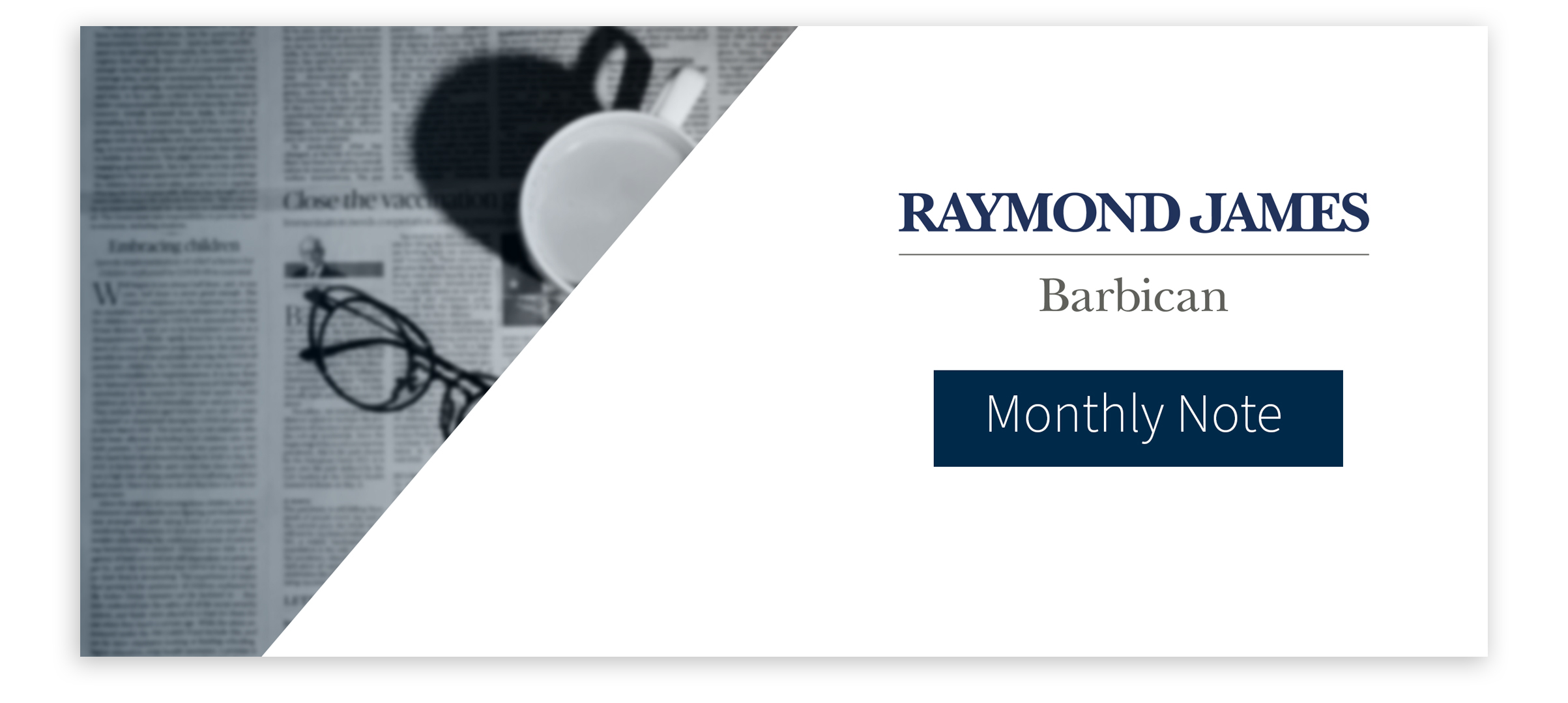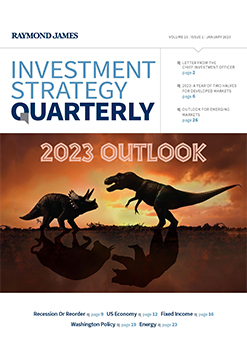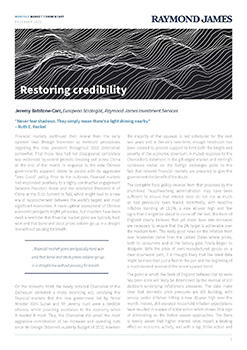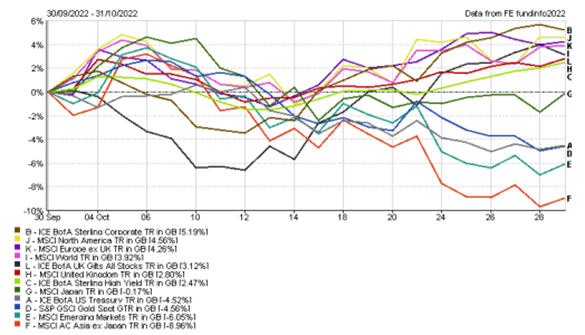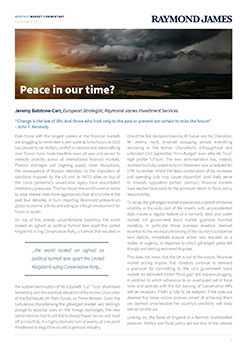Icy weather and plunging temperatures have swept across Europe this week. The fall in temperatures has been mirrored in equity markets, which have witnessed a modest pullback following a very strong start to the year.
Despite the cold snap of weather, European natural gas looks set to record its longest weekly run of falling prices since the beginning of 2020. With elevated storage levels of natural gas and an expectation of warmer weather returning, gas prices have continued to decline. This should be good news for most businesses and consumers. We have seen a resurgence in European equities of late as the worst-case scenario of the area running of out gas now looks increasingly unlikely. We have witnessed a similar story in the UK – lower gas and petrol prices are a boost to the consumer, and while the outlook is still not particularly rosy, the slightly improved conditions have led to a sharp rebound in UK consumer stocks.
UK inflation data this week showed a slight easing in inflation which came in at 10.5%, down from 10.7% in November. Some of the biggest drivers of inflation were food and drink prices, which rose at their fastest rate since 1977. The high levels of inflation mean a further 0.5% interest rate rise is likely at the next Bank of England (BoE) meeting, taking the headline rate to 4%.
UK retail sales data was slightly disappointing, showing an unexpected 1% fall in December from the previous month, indication that consumers are reigning in spending on the back of high inflation and an uncertain economic outlook. We witnessed similar poor retail sales data from the US last week, showing this is a global issue as opposed to UK centric.
The trend of disappointing data this week was further evident with the New York state factory index significantly dropping, pointing towards weakness in factory activity at a national level. While the weak data was bad news for equity markets, we have seen bond markets continue their strong start to the year. Concerns around the global economy have led to falling yields (rising prices) for developed market government bonds. This has been driven by the view that the US Fed will now only raise interest rates by 0.25% at the next meeting as opposed to 0.5%, while the end of the overall hiking cycle appears to be approaching.
The gold price held firm this week, reaching eight-month highs. The rally in January looks to be driven by a combination of a weaker US dollar, elevated inflation, and declining US real yields. The declining US dollar and moderation in bond yields has also benefitted emerging market equities, coupled with the faster than anticipated reopening of China.
The slight pullback in markets this week should not detract from what has been a positive start to 2023. The leaders within the portfolios this year have included some of the alternative asset classes, including gold and infrastructure. It highlights to us the importance of being well diversified when constructing portfolios and looking beyond simply allocating to equities and bonds.
Andy Triggs, Head of Investments
Risk warning: With investing, your capital is at risk. The value of investments and the income from them can go down as well as up and you may not recover the amount of your initial investment. Certain investments carry a higher degree of risk than others and are, therefore, unsuitable for some investors.


